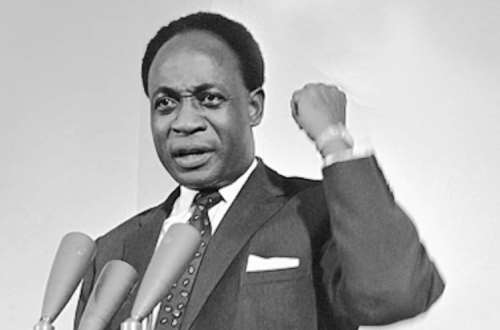In a bid to settle the ongoing debate about Ghana’s Founders Day, Professor Kojo Yanka, the Founder and President of the African University College of Communication has provided a detailed narrative that underscores the pivotal and unparalleled role of Dr Kwame Nkrumah in Ghana’s independence movement.
The founder of the Pan-African Heritage Museum, in a compelling argument, indicated that his findings are based on extensive research and personal interviews with key historical figures, including Dr. J.B. Danquah and Dr. Ako Adjei.
“With due respect to President Nana Akufo Addo, may l share a little research l have studied on Ghana’s independence: Dr JB Danquah and Dr Ako Adjei whom l had the privilege to interview when l was publisher of the Uhuru Magazine, met Kwame Nkrumah for the first time in the United Kingdom.
“Nkrumah had arrived in London after a long period of studying and engaging in Pan-African activities in the United States of America. Kwame Nkrumah had also met WEB Du Bois who invited him (and Jomo Kenyatta) to be Secretary at the Manchester 1945 Congress. Lawyer and Scholar JB Danquah and Ako Adjei were both at the conference and could not help but notice this ‘dynamic, radical, knowledgeable’ Kwame Nkrumah who was very active at the conference”.
Professor Kojo Yanka, the Founder and President of the African University College of Communication and the PanAfrican Heritage Museum
The UGCC and the Emergence of Nkrumah
Highlighting the political development that transpired in the Gold Coast, Professor Yanka pointed out that both JB Danquah and Ako Adjei were struggling to organize the masses under the United Gold Coast Convention (UGCC).
He asserted that recognizing Nkrumah’s potential, the two individuals invited him to serve as the General Secretary of the UGCC, however, ideological differences soon surfaced.
Professor Yanka further recounted that Dr. Nkrumah’s impatient with the UGCC’s elitist and slow approach led him to part way with the party, adding that the development led him to move to Saltpond and establish a youth organization that would become the base for the Convention People’s Party (CPP).
The Rise of the CPP and the Path to Independence
Moreover, Professor Kojo Yanka, the Founder and President of the African University College of Communication indicated that Nkrumah’s CPP quickly gained traction, mobilizing the ‘verandah boys’ and the broader populace.
He noted that despite initial opposition from some UGCC members, including J.B. Danquah, Nkrumah’s party won majority seats in the 1951 and 1954 elections.
According to Professor Yanka, the colonial administration, recognizing the inevitability of Nkrumah’s influence, began negotiating with him, ultimately leading to Ghana’s independence.

Professor Yanka emphasized that while many individuals and traditional leaders played significant roles in opposing colonial rule, Dr Kwame Nkrumah stands out as the primary architect of Ghana’s independence.
He argued that despite the bitterness from some quarters, particularly those affected by Nkrumah’s Preventive Detention Act, history vindicates Nkrumah as Ghana’s Founding Father and Osagyefo.
“Letters and actions opposing Nkrumah’s path to independence are available to verify. Nkrumah was in no mood to negotiate with Ghanaians who were NOT READY for independence; and he started implementing some of his plans for Ghana when he was made Prime Minister and Leader of Government Business.
“By 1956, the British were confident that Nkrumah had the backing of majority of Ghanaians and therefore dealt with him till independence. Not every Ghanaian loved Kwame Nkrumah, but History is on the side of Kwame Nkrumah as the Founding Father and Osagyefo of Ghana”.
Professor Kojo Yanka, the Founder and President of the African University College of Communication and the PanAfrican Heritage Museum
In his closing remarks, Professor Yanka advocated for national cohesion and reconciliation, urging political leaders and Ghanaians to follow the example set by President John Agyekum Kufuor of the United Party (UP) tradition, who embraced reconciliation as a path to unity.
“Let us acknowledge the contributions of all who fought against colonial rule, but let us also recognize that Kwame Nkrumah is in a class of his own”, Professor Yanka asserted, adding that “For the sake of national cohesion, we must accept reconciliation as the only path forward”.
READ ALSO: IPPs Urge Finance Minister to Expedite IMF Fund Disbursement























